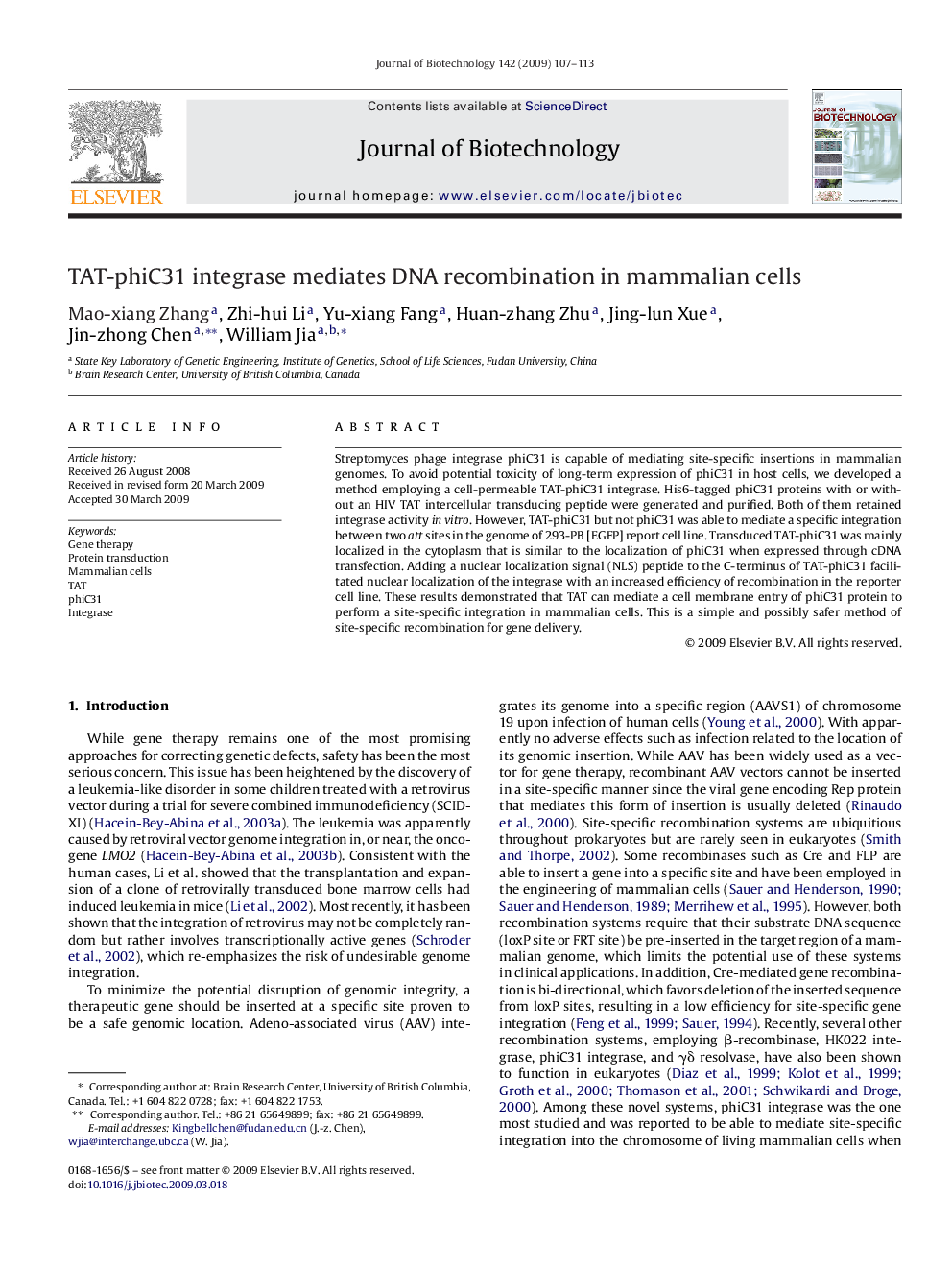| Article ID | Journal | Published Year | Pages | File Type |
|---|---|---|---|---|
| 24581 | Journal of Biotechnology | 2009 | 7 Pages |
Streptomyces phage integrase phiC31 is capable of mediating site-specific insertions in mammalian genomes. To avoid potential toxicity of long-term expression of phiC31 in host cells, we developed a method employing a cell-permeable TAT-phiC31 integrase. His6-tagged phiC31 proteins with or without an HIV TAT intercellular transducing peptide were generated and purified. Both of them retained integrase activity in vitro. However, TAT-phiC31 but not phiC31 was able to mediate a specific integration between two att sites in the genome of 293-PB [EGFP] report cell line. Transduced TAT-phiC31 was mainly localized in the cytoplasm that is similar to the localization of phiC31 when expressed through cDNA transfection. Adding a nuclear localization signal (NLS) peptide to the C-terminus of TAT-phiC31 facilitated nuclear localization of the integrase with an increased efficiency of recombination in the reporter cell line. These results demonstrated that TAT can mediate a cell membrane entry of phiC31 protein to perform a site-specific integration in mammalian cells. This is a simple and possibly safer method of site-specific recombination for gene delivery.
